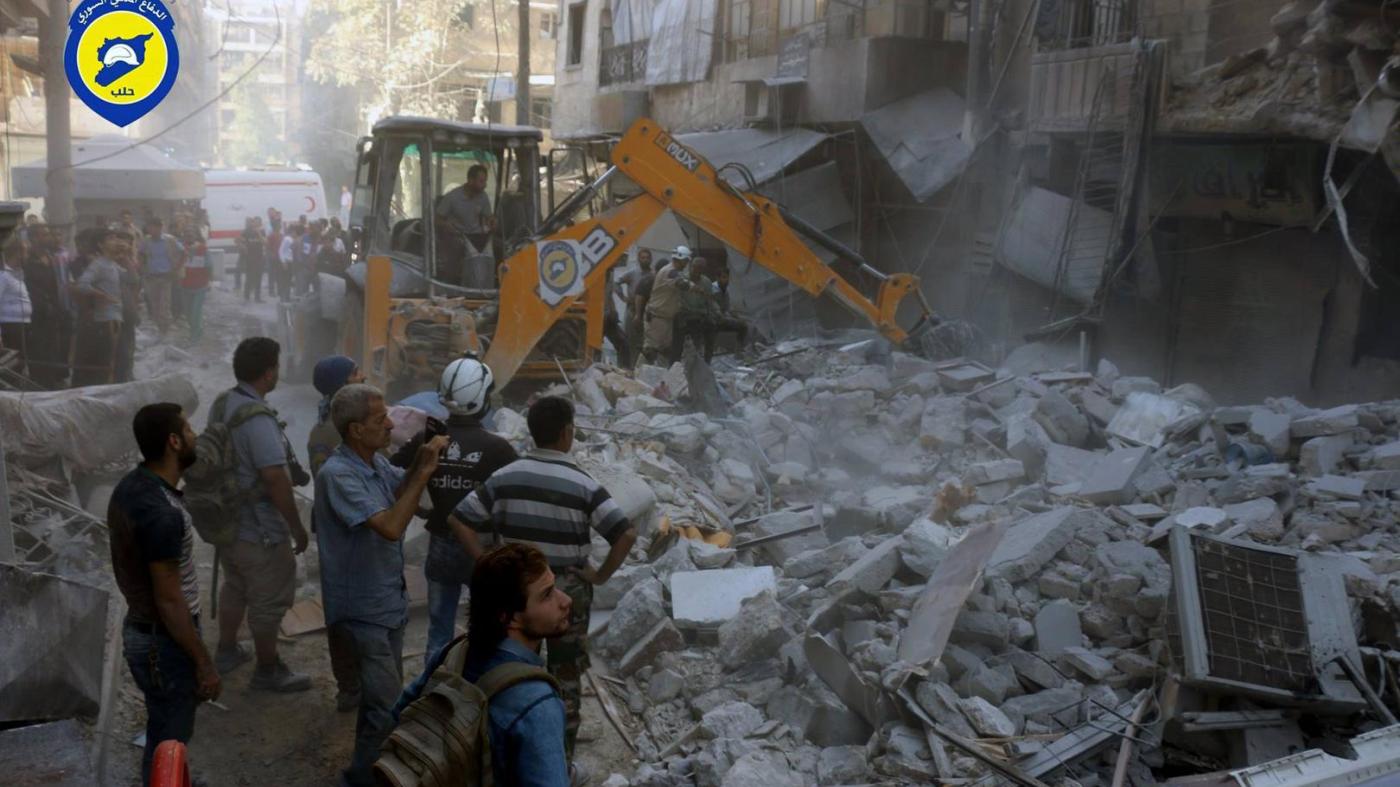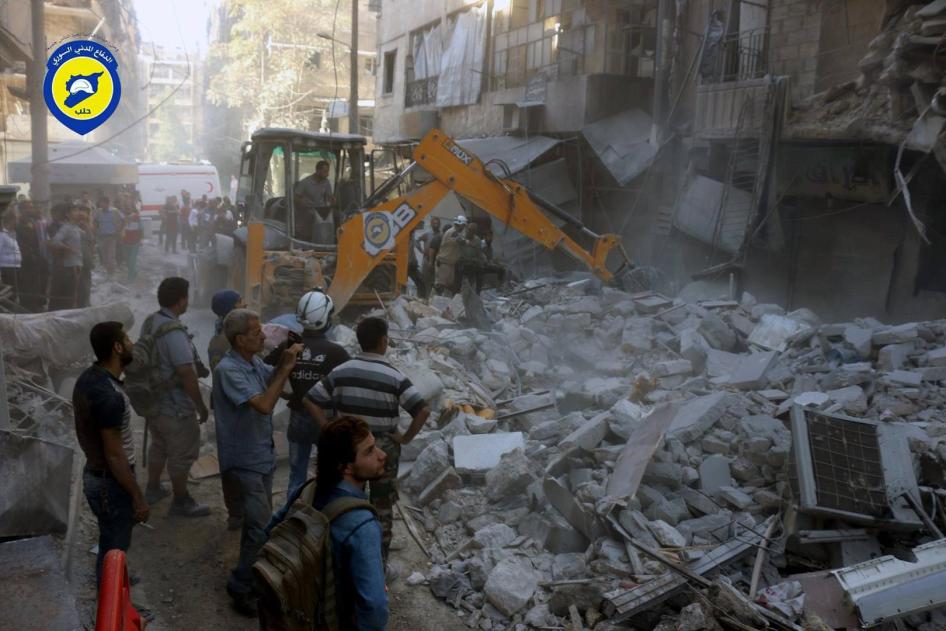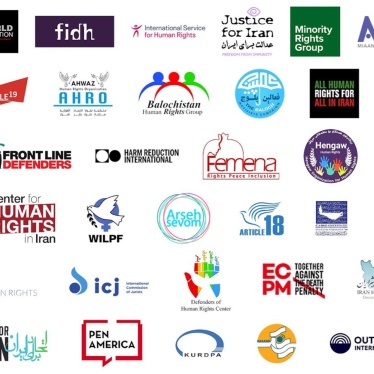Even after five years of horror in Syria, with hundreds of thousands dead and millions displaced, the extent of atrocities in Aleppo is hitting new highs as Syrian government forces advance on the rebel-held eastern part of the city. Syria’s commercial capital, once a beautiful and vibrant metropolis of narrow streets filled with shops, restaurants, and bars, has been reduced to a rubble-strewn wasteland. For at least four years, armed opposition groups have controlled the besieged east, which last summer was still home to more than 250,000 people. Forces loyal to President Bashar al-Assad have held the west.
Since September, the Syrian and Russian air forces have intensified bombing raids, pounding rebel-held areas from the skies using barrel bombs, cluster munitions, incendiary weapons, and even chemical weapons. They have also advanced in their ground assault. Armed opposition groups have indiscriminately shelled suburbs in government-held western Aleppo, killing and injuring many civilians. Now pro-government troops are closing in, meaning thousands of civilians – one third of whom are children – are forced to flee either deeper into rebel areas, to Kurdish-controlled areas to the north, or by bus to western Aleppo. Emma Daly speaks with Syria researcher Hadeel al-Shalchi about the chaos, the air strikes, and artillery fire coming from both sides, and the civilians stuck in the middle who can’t find a safe place to go.
What’s happening in Aleppo?
People tell me they’re huddling in alleyways or crammed into other people’s homes because theirs have been destroyed. Or squatting in damaged buildings. As the area held by rebels shrinks, they’re desperately trying to find a safe place.
The last aid delivery was in July and rations were due to run out in mid-November. And Aleppo’s very densely urban – there’s no opportunity for people to grow vegetables or raise animals for food. So people are sleeping on the streets and starving.
How do you know what’s going on in Aleppo?
We can’t get in, so I’m in touch with a network of sources by phone – either voice or text messaging systems, usually WhatsApp, which is very popular in Syria. These are people I’ve been in touch with for months – activists, local journalists, and doctors who live in Aleppo. The networks change as time passes – so many of our contacts have left the country and become refugees. But then they put us in touch with relatives who are still inside. I send detailed questions about what’s going on and the violations we’re hearing about, and they send back specific information: How many civilians died in a certain air strike, listing names and numbers of casualties. They also send photos and videos of bomb fragments or destruction that help us to figure out whether an attack was a violation of the laws of war. And they send stories about themselves and their families, pleas for help.
But these days it’s even harder – internet access is very limited and people in the east find it hard to stay in touch with those who have crossed to government-held areas. Those still besieged are not just depressed but getting hysterical as their numbers dwindle. They see people leaving for West Aleppo when they thought people would stay to the end. They’re stuck, desperate to survive, while everything is collapsing around them, literally and figuratively.
I just got a message back from a guy who I asked to put me in touch with newly displaced people inside Aleppo. He told me, nobody wants to talk to you anymore. We’re exhausted. No one cares about us. It’s like the world is conspiring against us, like you agree with what’s happening in Aleppo.
How do you know they’re telling the truth?
We have to verify everything we’re told so it’s very difficult for us to publish anything quickly. We normally need more than two or three people to share similar experiences with us for us to report on it. For instance, one person told me his family has been detained by government forces but he can’t explain how he knows, and I can’t find others who have had the same experience. That doesn’t mean it’s not true, but we can’t comment on it yet. So I will try to corroborate it, to see if there are photos or videos, or if I can find other people telling similar stories.
Sometimes I get messages from people I don’t know – usually from groups outside Syria who want to connect me to someone in Syria. I listen and follow up and sometimes I get useful information.
Covering Syria is very, very difficult and it’s terrifying – to think that there are probably terrible things happening that we don’t know about, and layers of information that we can’t get at because we don’t have access. We can’t go in to rebel areas because the risk of kidnapping is so high. We have to get a visa for Damascus or West Aleppo, and the government won’t grant us one and hasn’t done so in two years. We are at least able to visit Kurdish-controlled areas in the north and talk to people who’ve fled from other parts.
What’s the main concern at this point?
Apart from the bombardments, I’m most concerned about the humanitarian situation, the lack of food. And there’s virtually no medical care left, since the few hospitals not destroyed by air strikes are overwhelmed. We have no real sense of what’s happening in areas re-taken by the government. We don’t know how detainees are being treated, and given President Assad’s horrific record, we’re very worried about the danger of revenge executions and torture for ex-combatants or civilians seen as opposing the government.
What can anyone do to improve the situation?
We want the Syrian government to stop bombing civilian areas and to treat people according to international humanitarian law. All sides need to do everything they can to protect civilians, including ensuring they can safely flee from the fighting. The media is covering the attacks on eastern Aleppo, the world knows there’s a crisis but governments aren’t doing anything – that’s what makes it so depressing. We’re calling for an emergency session of the UN General Assembly, since Russia is preventing Security Council steps – but even if we get that, will the bombing continue? This is the worst crisis of our generation and what have we done? At least the UN Security Council could refer Syria to the International Criminal Court if only Russia would allow it – that threat might convince commanders to stop torturing, committing war crimes. And eventually, it might bring the victims on all sides some measure of justice.
Someone from Aleppo told me the other day, “You got all the information from us and nothing happened, so what’s the point?” Now it’s hard to argue with that perspective. But we have to keep going, to document the war crimes and human rights abuses, in the hope that one day there will be a reckoning in court.
This interview has been edited and condensed.





